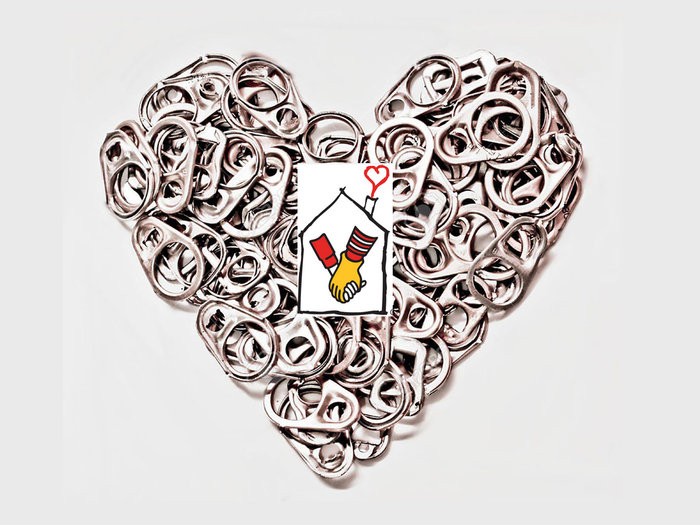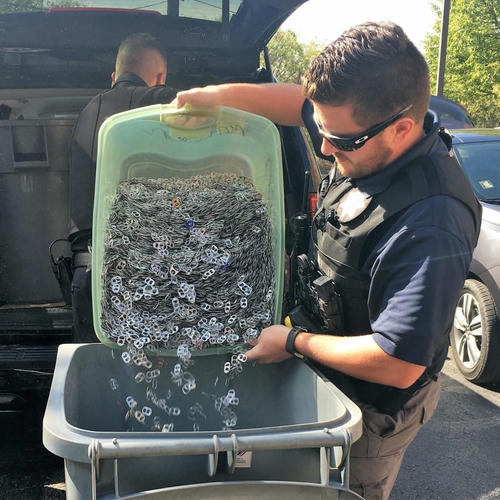The Value and Values of Collecting Pop Tabs for Ronald McDonald House
Collecting pop tabs for Ronald McDonald House Charities is a powerful fundraising effort, right? The truth is more nuanced. Here's the real story behind this tradition and why it's more about values than value.

If you grew up in the U.S., you've probably heard about collecting pop tabs for Ronald McDonald House Charities (RMHC). Schools, churches, and community groups have long encouraged kids to save those tiny aluminum pull-tabs from soda cans, believing they provide significant financial support for families in need. There were pop tab drives, contests, collection boxes all across the country, and the program definitely still exists today!
Here's the reality
Some Ronald McDonald Houses do, in fact, still collect and recycle aluminum pop tabs. According to their website:
"Some of our Chapters raise thousands of dollars with their pop tab collections each year. Ask your local Chapter if they have a Pop Tab Collection program and learn more!" (source)
When large quantities of tabs are gathered, they're taken to Ronald McDonald house. But then what happens to them? They're collected in dumpsters and when the dumpsters are full, the tabs are carted off to recycling centers where they're exchanged for cash. RMHC's recycling partner, United Scrap Metal, buys these tabs at market rate and even adds an extra charitable contribution.
Sounds great, right? Here's the math:
- 1 pound of pop tabs has a scrap value of about 25 cents. (source)
- There is about 1,267 tabs per pound (source)
- That means a single pop tab is worth about $0.0002.
- It takes 51 tabs to equal one cent in recycling value.
That means if you collected one million tabs (~800 lbs, 260 gallon jugs), you'd have just about $200 in cash value. Clearly, pop tabs are not an efficient way to raise money. What gives?!
Wouldn't It Be Better to Collect Full Cans?
You're right, you smart cookie. Here's that math:
- There are about 32 cans per pound, meaning the tab itself is about 2.5% of the can's aluminum. (source)
- The body of the can is made of the exact same aluminum alloy as the tab and is no less valuable. (source)
- The entire can is worth 39x the value of the tab itself.

So Why Bother Collecting Just the Pop Tabs?
If the fundraising impact is so minimal, why does RMHC continue to promote pop tab collections? Because the program was never really about fundraising. It's about teaching kids the value of charity and recycling.
Here's why the tradition persists:
-
Pop Tabs Are Small & Easy to Collect
Kids might not be able to haul bags of empty soda cans to a donation center, but they can collect and donate small, clean pop tabs. -
It Teaches Philanthropy at a Young Age
By engaging children in the act of collecting and donating, RMHC introduces them to charitable giving in a way that's accessible and tangible. -
It Encourages Recycling
While the fundraising aspect is minor, the program reinforces the idea that recycling has value, even if it's small. -
It Builds Awareness for RMHC
When schools and groups participate, they spread awareness of the Ronald McDonald House mission, which helps families with seriously ill children find housing near medical treatment centers.
Wouldn't It Be Better to Donate Cash?
Absolutely. If raising money is the goal, donating a couple cents per person would be far more effective. However, that's not the point of the pop tab collection.
The program exists to get kids engaged, to make philanthropy feel achievable, and to spread awareness. In that sense, pop tab collection is a great success, even if the dollar amounts are tiny.
The Bottom Line
Yes, collecting pop tabs for Ronald McDonald House Charities technically raises money but the financial impact is incredibly small. It's a token effort and was never meant to be a efficient way to recycle or fundraise. What's more important is that the program encourages young people to think about giving back and taking care of the environment.
So, if you have a collection of pop tabs, by all means, donate them! Just don't expect them to fund an entire hospital wing. The real value isn't in the aluminum, it's in the lesson.
